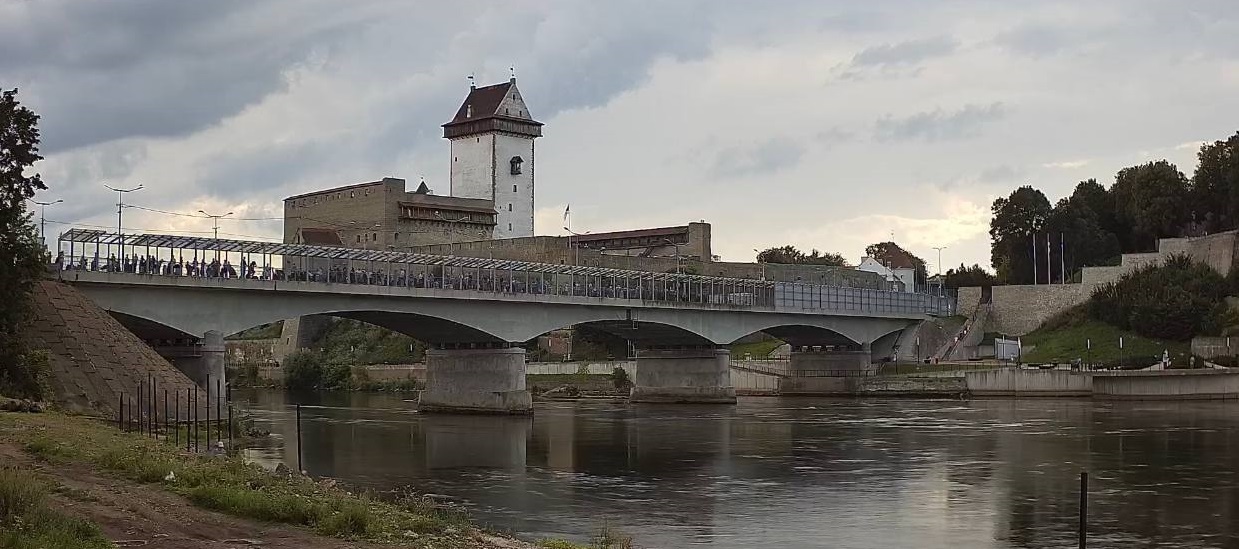This article by Aleksanterinliitto member Enrique Tessieri is published on the Migrant tales portal, which we highly recommend to anyone who wants to know the stories of other, non-Russian-speaking migrants in Finland.
The vision of the Aleksanterinliitto media editorial team generally coincides with the opinion of the author of the article. We would only add that 15-17 hours of traveling time, which so impressed Enrique, is the average duration of a journey from the capital region of Finland to St. Petersburg in modern realities. A journey from central Finland to Petrozavodsk or Moscow, for example, can take even two days. We have given examples of how the journey from Finland to Russia has increased due to the closed border in our answers to frequently asked questions.
The vision of the Aleksanterinliitto media editorial team generally coincides with the opinion of the author of the article. We would only add that 15-17 hours of traveling time, which so impressed Enrique, is the average duration of a journey from the capital region of Finland to St. Petersburg in modern realities. A journey from central Finland to Petrozavodsk or Moscow, for example, can take even two days. We have given examples of how the journey from Finland to Russia has increased due to the closed border in our answers to frequently asked questions.
With no solution in sight to the end of the war in Ukraine, part of the collateral damage is the Russian-speaking community of Finland, by far the biggest language group outside of Finnish, Swedish, and Sami.
Even before Russia invaded Ukraine, there was a lot of hatred and suspicion of Russians. Even if Finland signed an armistice with the former USSR in 1944, it appears that too many Finns are still in the trenches.
Some, driven by their xenophobia of Russians, would be ready to take away their dual citizenship rights. One of the most enthusiastic is former President Sauli Niinistö. A December survey showed that 34 MPS, mostly of the hard-right Perussuomalaiset (PS) and National Coalition Party, would want to prohibit Russians from having dual citizenship.
A study by Hannes Viimarananta, Ekaterina Protassova, and Arto Mutajoki on Russian speakers in Finland, says that such a community is commonly misunderstood.
“Russian-speakers in Finland are framed, firstly, as an immigrant group, alongside other sizeable immigrant groups. Secondly, Russian speakers in Finland are commonly [and simplistically] perceived as representatives of Russia—a powerful, and at times threatening, neighboring country…” the authors write.
Even before Russia invaded Ukraine, there was a lot of hatred and suspicion of Russians. Even if Finland signed an armistice with the former USSR in 1944, it appears that too many Finns are still in the trenches.
Some, driven by their xenophobia of Russians, would be ready to take away their dual citizenship rights. One of the most enthusiastic is former President Sauli Niinistö. A December survey showed that 34 MPS, mostly of the hard-right Perussuomalaiset (PS) and National Coalition Party, would want to prohibit Russians from having dual citizenship.
So great is the hatred of brown asylum seekers and Russia that in June Finland threw its good name under the bus as a Human Rights defender and upholder by lowering itself to the same level as Poland, Latvia, and Lithuania, which deny people the right to asylum.
A study by Hannes Viimarananta, Ekaterina Protassova, and Arto Mutajoki on Russian speakers in Finland, says that such a community is commonly misunderstood.
“Russian-speakers in Finland are framed, firstly, as an immigrant group, alongside other sizeable immigrant groups. Secondly, Russian speakers in Finland are commonly [and simplistically] perceived as representatives of Russia—a powerful, and at times threatening, neighboring country…” the authors write.

The Estonian-Russian border crossing at Narva. Sources: Helsingin Sanomat and Wikimedia.
The ordeal of visiting relatives and loved ones in Russia has been complicated by the closing of the Finnish-Russian border since November. One Russian speaker, who spoke on condition of anonymity explained how complicated it is today to travel to Russia from Finland.
The border in Narva closes at 11 pm.
“If you live in Helsinki, you’ll have to take the ship to Tallinn, which takes about two hours,” she said. “From Tallinn, you can travel by train or bus to Narva. By bus, it takes three hours and by train two hours. You have to buy your tickets well in advance.”
She said that a long wait awaits at Narva, sometimes taking up to nine hours. There are no seats as you wait patiently in line, bathrooms are far away. Getting on the Russian side, you can board a bus to Saint Petersburg, which is a 2-3 hour away.
The whole journey can take as long as 15-17 hours!
“Traveling to Turkey is too expensive as is trying to cross the border in Kirkenes, northern Norway,” she concluded.
She agreed that even if the border guards treat the people well, it is a good example of how Finland and Estonia can bully Russians.


